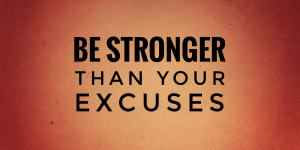Life changes, traumatic events or even just garden-variety nighttime against can make us feel uncertain about our future. Are you ready to move on with your life after a sudden change – or are you just waiting for someone to tell you how it’s all supposed to work? Read on to find tips, steps and guidance on how to figure out where you want to go, how you want to get there and what you want to be when you arrive
Unexpected life changes. Anticipated transitions. Long, sleepless nights. What do these three things have in common? The ability to provoke one of the most haunting questions in the library of human introspective:
“What on earth am I going to do with the rest of my life?”
While I can’t pretend to answer to this question for anyone other than myself, I can offer those in this position some basic tips on how to ensure that their future turns out as bright as their class valedictorian said it would be.
Take Time To Create A Map
Too often, when faced with a major (or even not so major) life decision, we tend to either take the first decent choice that presents itself or we allow circumstances to choose for us by default – putting off the decision until the inexorable current of life sweeps us past the turning point. As you can imagine, this is not the best way to get what you want out of life. But the options we are faced with in life can be so wildly divergent, or so deceptively similar, that it is difficult to know which turning to take. Wouldn’t it be great if we had some kind of road map that would help us know which paths to follow and which to pass by?
Below are five questions that everybody should ask himself or herself before starting out on any new path. The answers to these questions should then be used to guide decisions and to direct actions – when a choice comes up, simply compare the various options with your stated desires and choose the option that takes you closer to (or at least moves you the least farthest away from) your destination – your stated goals and desires.
1-What does success mean to me?
Be very specific. “I want to be rich,” is not an answer – just what does “rich” mean, anyway? Are you thinking of a set number? And if so, why? Or is the term “rich” a substitute for certain freedoms and opportunities that you view as coming only with money – and by limiting them to being accessed only through money, are you missing out on other alternative pathways?
Some more specific alternatives to “I want to be rich,” depending on the individual, might be: “I want to have enough net income to meet my current financial responsibilities without strain, plus have time and money left over for travel,” or “I want to be able to comfortably afford a jet-setting lifestyle in New York City,” or “I want to spend 4 days a week at home with my kids,” etc.
You should try to come up with at least three answers to the question of what success really means to you personally, with each one reflecting a different facet of what you feel makes up a truly successful life. And keep the money issue to just one statement – after all, such things as personal fulfilment, spiritual meaning and other essential needs and values cannot be solved, acquired or even influenced by money
One of the biggest obstacles to success is that most of us have never consciously explored what that means to us, aside from some vague and nebulous idea of fame, fortune or otherworldly success. Knowing what success really means to you – what you hope or imagine that these generic definitions of success would actually provide and how you want those things to physically look like in your life – allows you to weigh your choices more accurately.
2-What are my non-negotiable needs?
List all the things that you envision as inescapable parameters of a successful and enjoyable life. Family, travel, no debt, pleasant work environment, social status, contributions to society, spiritual involvement, public acclaim, love, excitement, comfort – any or all of these, and any others you can think of are legitimate needs that when not met create an environment of stress, want and disempowerment in your life. Knowing what you are not willing to do without makes the relative values of different options clearer.
3-What are my non-negotiable boundaries?
List all the things that you absolutely do not want to present in your life. If the idea of working in a standard hierarchical office environment makes you ill, put that down. If you can’t stand the thought of living in a cold climate, add that to the list. If being poked fun at about your physical condition or other attributes makes life unlivable, note that as well. By knowing what you will not tolerate, many choices become much easier to make. Plus, it allows you to set down rules and policies about who and what you will invite into your life and the standards of behaviour you will, and will not, tolerate.
4-What are my key values?
Spend some time searching your soul to come up with a list of your basic values, creating a life around which would make you the person you want to be and allow you to live the life you want to live. Are you the type who values honesty, clean/green living and a deep love of nature above all things? Or are you more of a ‘comforts of home’, family and fun kind of person? Do you value charity over letting others find their way on their own, or is it the other way around? Knowing what you truly stand for is a vital component of good decision-making.
5-What do I want to be remembered for?
What legacy do you want to leave here when you pass on? What do you want people to say about your life and you as a person? What do you want to be known for? What would you like your obituary to say about you? Knowing where you want to end up makes choosing the path to get there, and keeping track of your progress, infinitely easier.
Key Points To Consider
There are three key points to keep in mind when you are faced with making life-changing decisions.
- Look before you leap.
In life, as in commercial marketing, “Buy now before this opportunity is gone!” is almost always code-speak for, “Buy now, before you have time to read the fine print.” True, from time to time real, honest-to-goodness, amazing, once-in-a-lifetime offers do come around. But if you have laid down a foundation of well-considered choices and clear-minded focus before this happens, you will have the presence of mind and strength of purpose to know when to jump and when to pass and be much more capable of telling the difference between a missed opportunity and a close call.
- Life is no longer a “one chance per person” event.
The times, they are definitely changing, and one of the best things to come out of that change is that we now understand that people change as well and that this is not only normal but expected. The career or life that suited you perfectly in your 20’s will most likely not fit the middle-aged you, no more than the same wardrobe or lifestyle would. Sometimes this is merely the result of the normal process of personal evolution we all go through as we age and mature, and sometimes it comes about suddenly in response to reality-shifting events and life-changing transitions such as living through a traumatic event, losing a job or getting married.
However, change comes, be prepared to go with the flow. Don’t worry about “all that time I spent in grad school,” or what your friends and family will say. In the first instance, there is no such thing as “sunk costs” in life – 90% of nearly any education or life experience is 100% transferable to new situations and new outlets. In sports they call it “cross-training,” and an athlete doesn’t consider his or her training complete without in. In the second instance, well, if they love you they will want you to be happy and if they don’t love you, then who cares what they think? Besides, they’re not the ones who have to live this life – you are.
Also falling under this heading is the admonition not to trade a good life now for some nebulous “better tomorrow,” such as spending your life zombie-ing through a career you hate for the promise of a pensioned retirement. All too often, these “tomorrows,” if they ever do come, are no better than the “nows” you wasted. And as often as not the stress of living an unhappy life permanently cripples or even kills people, physically or otherwise, well before they can get to their imagined golden “tomorrow.”
- Trying to find your “one, true purpose” is a waste of life.
We are all put here on this earth for any number of reasons – some big, some small and most of which we will never understand or even realize we’ve participated in until well after they’ve become a distant memory. Spending too much time trying to scry your “true purpose” in the tea leaves of life can take your attention and energy away from creating the kind of life that would actually support the accomplishment these purposes in the first place.
A far better is alternative to create what I call a “Groundhog Day-Proof Life.” Based on the Bill Murray movie in which his character has to live the same day over and over, this concept involves creating a life that reflects your values, offers you opportunities to challenge yourself and is fulfilling enough and just plain pleasant enough so that if by some strange cosmic fluke you became trapped in any given day of your life, it would be a good thing rather than a tragedy. Living this sort of life virtually ensures that you will be who and where you need to be to fulfil any purpose you may have been sent here to accomplish, while at the same time providing you with a wonderful and rewarding “rest of your life” in the process.
Getting the most out of life isn’t about living “right.” It’s about living well. Learning to consciously steer your life in the direction you want to take it, making the choice to live by your own set of values and desires and making sure that you get the most out of the limited days you are given ensures that when the time comes for your life to pass before your eyes in review, the show will definitely be worth the price of the admission.












